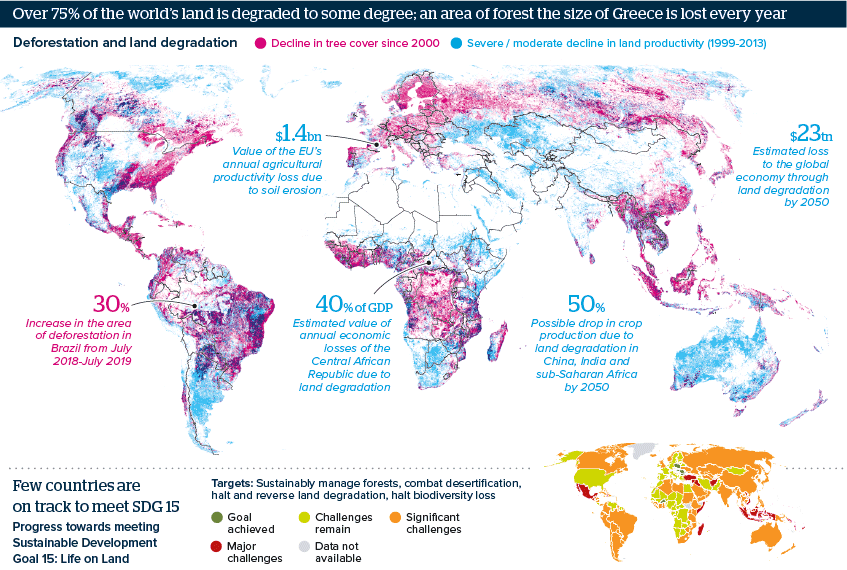Land misuse will pose long-term security threats
Food insecurity, natural disasters, poverty and population displacement could all worsen, exacerbating conflict risks
Source: UN Sustainable Development Report 2019; World Atlas of Desertification; media reports
Outlook
Deforestation is one of the most widely discussed environmental challenges, and it continues at an alarming rate. It exacerbates climate change risks and impacts such as flooding and landslides, creating major social challenges for the 1.6 billion people who depend on forests for their livelihoods.
Land degradation, often compounded by tree removal and bad agricultural practices, could become a self-perpetuating problem, as farmers are forced to fell trees in order to create more fertile land. Such circumstances raise long-term risks of food insecurity, water insecurity, forced population movement and social conflict, which will almost certainly lead to violence in places.
Impacts
- Deforestation in Brazil will further increase under President Jair Bolsonaro, risking the country’s international relations and exports.
- Indonesia and Malaysia -- the world’s largest palm oil producers -- will keep promoting that commodity, despite deforestation criticism.
- Africa’s Great Green Wall tree-planting initiative to halt the Sahara’s expansion could provide a blueprint for similar projects elsewhere.
- Costa Rica, which has successfully monetised the protection of its environment, provides a model for other small countries to do the same.
See also
- Climate change to hit development in the global south - Jul 29, 2021
- Prospects for global development goals to end-2020 - Jun 2, 2020
- COVID-19 global climate impact may be brief - Mar 27, 2020
- Global climate policy will focus on land use - Aug 29, 2019
- More graphic analysis
